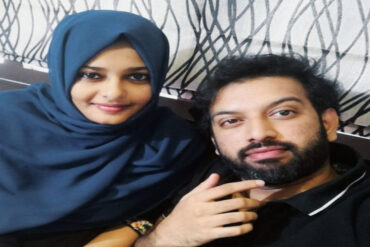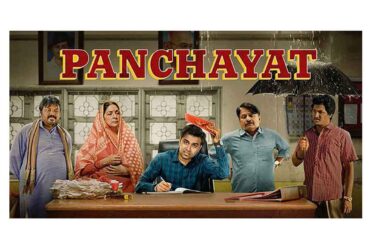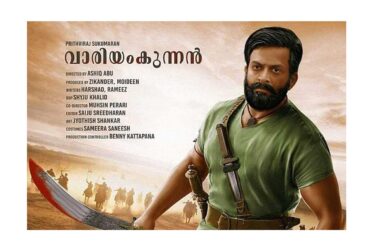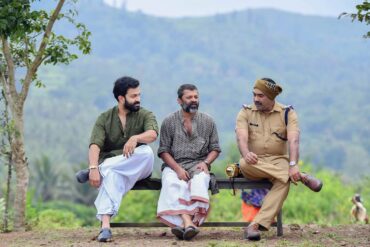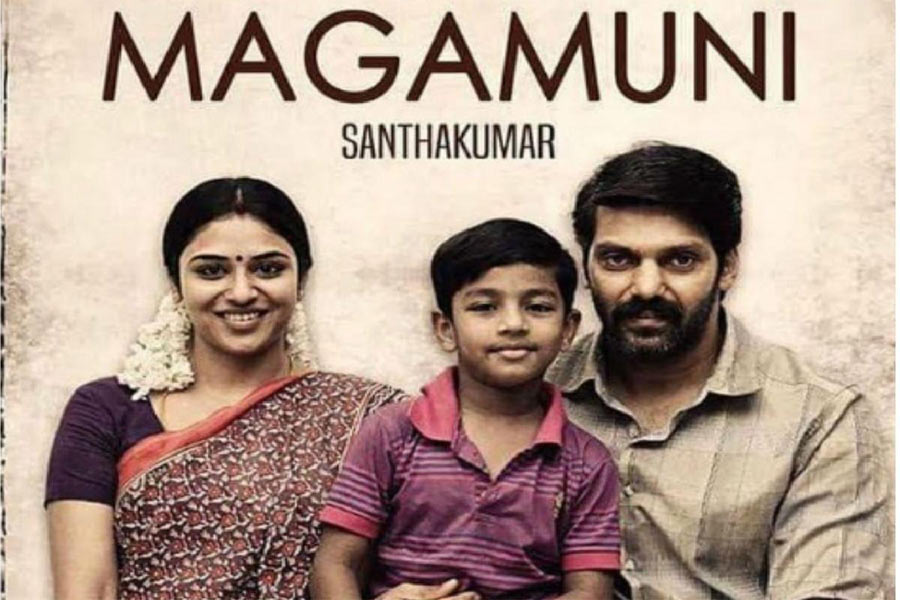Films featuring actors in dual roles are generally the most redundant type in Indian commercial cinema. More so if the two characters happen to be siblings. Director Santhakumar in his second outing with Magamuni, dares to experiment with that outdated dual-role concept and manages to tread a different path. The film features Arya in a double role as Maga and Muni, identical twins, who were separated during their childhood. They are unaware of each other’s existence and live contrasting lives.
While Maga lives in the city as a cab driver and doubles up as Man Friday for a local politician, Muni is an organic farmer-cum-teacher who stays in the village. The former stays with his wife and young son while his sibling has his adopted mother for company. Their lives go on in a parallel universe until a series of events set their paths to intersect. As a rough plot, this might seem quite similar to the dual role films of yesteryear but Magamuni is original in its execution and all due must be given to Santhakumar who has penned the script too.
The treatment of the film is its biggest strength as the entire first half keeps us guessing about Maga and Muni even making us wonder if they are one and the same. This curiosity in itself is a victory for the screenwriter as engaging the audience in a thriller is no mean feat. Arya is the lifeline of the film with his exemplary portrayal of the title characters and he manages to bring in the diversity in the two roles with a remarkable amount of restraint.
The two leading women in the film, with well-etched out characters, are delightful to watch, especially Indhuja who plays Maga’s wife. She does a convincing act as the typical woman who lives a struggling life with her husband and child. Mahima plays Muni’s love interest and she looks the part as an eccentric and bold young woman who isn’t afraid to speak the truth, even if it’s against her own family but at times she appears to be trying too hard to appear commanding.
The film boasts a skillful support cast who are all efficient in their acts, thereby adding teeth to the screenplay. Santhakumar depicts a tale of emotions, steadily mixing it with an undercurrent of politics and mythology, all of which are woven seamlessly into the screenplay. The film does have pacing issues though, as Santhakumar takes time to establish his characters and the premise. There’s a lot of detailing some of which is a tad too long.
While the film’s songs (there aren’t many) aren’t the hummable kind, Thaman’s work on the background score is impressive as he as synced the varying moods of the film with aplomb. Arun Padmanabhan’s cinematography is ambidextrous as he unleashes his skill to lift the film by a few notches. Be it the coloring or the camera angles used, everything fits in perfectly well with the narrative. Sabu Joseph’s editing could have been crisper but I suppose this is how Santhakumar wanted—slow and steady.
Keeping the slow pacing aside, Magamuni gets most things right. Like any good thriller film, it has an air of interest around it from the first scene and that’s maintained till the final frame of the film. Of course, you might have to be extra vigilant to understand some of the subtle messages that Santhakumar is trying to convey, especially as they aren’t in your face. Opinions regarding religion, atheism, karma and even political ideologies are challenged by the protagonists through neatly placed conversations.
Having made a racy and gripping Mouna Guru as his debut, Santhakumar took eight years to bring his next film to fruition. Clearly, the time taken does reflect in the detailing of Magamuni’s screenplay and characterisation. If only he had sorted the pacing inconsistencies, this could have been an inch-perfect product.

